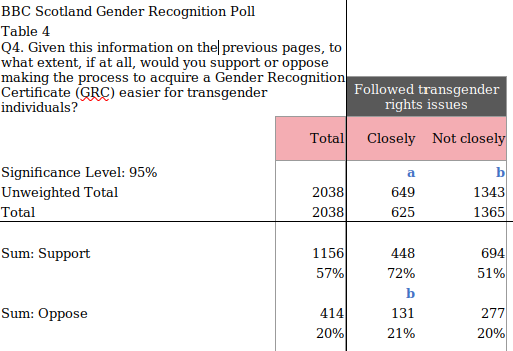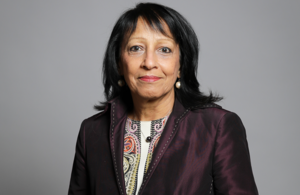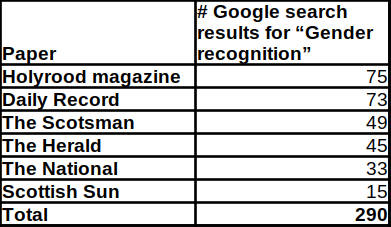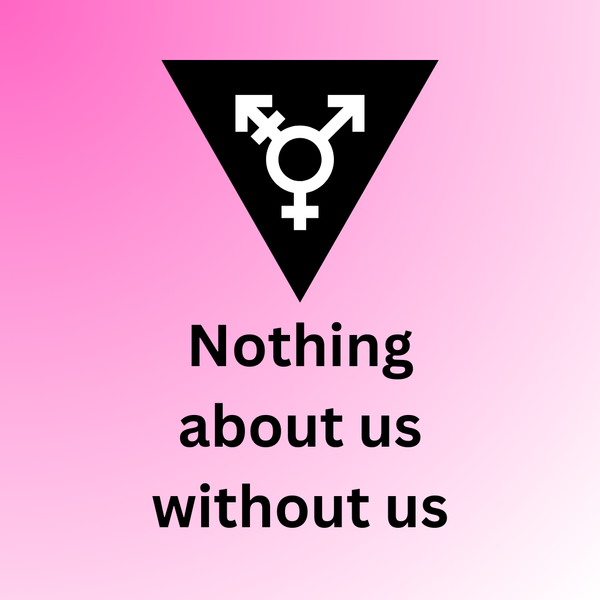The Gender Debate; when is enough enough?
Last month, the EHRC wrote to the Scottish Parliament calling for the Scottish government to delay planned reforms to the Gender…


Last month, the EHRC wrote to the Scottish Parliament calling for the Scottish government to delay planned reforms to the Gender Recognition Act, claiming that “more detailed consideration is needed before any change is made to the provisions in the Act”. This, and a simultaneous letter calling for a proposed UK conversion therapy ban to be watered down, prompted condemnation from over 30 LGBTQ+ and human rights organisations, as well as legal challenges to the EHRC’s international status. Since the release of this letter, further information has come to light from Vice News, Trans Safety Network and Steph’s Place showing an increasing hostility to material improvements for trans people in the EHRC and a culture of back channel communication with anti-trans hate groups.
The EHRC has hit back, both on social media and in the press, with EHRC chair Kishner Falkener seemingly deciding that not knowing what “transphobe means” made her look more competent and writing in the Observer:
I wrote to the Scottish government to advise that further consideration is needed to some specific aspects of the proposals, to take account of issues raised in relation to data collection, single-sex service provision and new case law. I said absolutely nothing to suggest any wavering of our commitment to trans rights.
What I want to focus on is the role of “debate” in all this. The EHRC has repeatedly claimed both that there has been a “polarised debate” on GRA reform and that more discussion is needed. The suggestion, broadly, seems to be that the Scottish government has not consulted enough, there hasn’t been enough conversation about the GRA.
The Scottish government has held two public consultations on GRA reform. The first, a consultation on review, ran from the 9th of November 2017 to the 1st of March 2018, receiving over 15,000 responses. The second, a consultation on a draft reform bill, ran from the 17th of December 2019 to the 17th of March 2020, receiving over 17,000 responses.
In addition to the thousands of responses from the public and organisations to the consultations, there’s been plenty of discussion in the press, with misleading adverts from anti-trans groups and a great deal of press. I checked the number of Google results over the period 9/11/2017 to 17/03/2020 on a couple of Scottish news sites for “gender recognition”

So while the two Scottish government consultations, receiving thousands of responses, ran there was an average of a little over two articles in the Scottish press mentioning gender recognition every week. Just how much more debate and discussion do the EHRC and their friends in the anti-trans movement want? And is it even about debate?
The evidence from the consultations generally shows support for reform. With 60% of respondents to the first consultation supporting reform (increasing to 65% for those actually in Scotland). This is consistent with recent polling data from Savanta ComRes on behalf of BBC Scotland, which showed majority support for it being made easier to obtain a Gender Recognition Certificate (57% of all respondents), with particularly high support from women (63%) contradicting claims by the EHRC that GRA reform represents a conflict between transgender people and women’s rights. Additionally, looking at the full data tables we can see that support is highest among those who have actually engaged with trans issues, with 72% of those who report having followed transgender rights issues closely supporting reform.
A great deal of public debate and conversation has happened about GRA reform over the last seven years in the UK and for those who have engaged with it in good faith, it’s increasingly clear that there’s no plausible evidence that making it easier for trans people to get legal recognition of our genders will cause serious harm for cis women. Currently gender recognition via statutory declaration (aka “self-ID”) is the norm in 17 countries according to Wikipedia as of today and has been for years in some cases, so far the sky hasn’t fallen in Ireland and the female population of Malta haven’t been Thanos snapped out of existence.
In light of this widespread support for reform, it’s hard not to see the EHRC’s calls for yet more debate after years of ongoing conversation as a demand to pretend transphobes haven’t lost the argument at every turn. The anti-trans movement constantly call for more debate because that’s the only way to hold back the inevitable; self-declaration is becoming the norm for gender recognition. They don’t want an open discussion, they want to keep insulting us from the pages of the national press while reforms that would improve our lives a little get held up forever.


